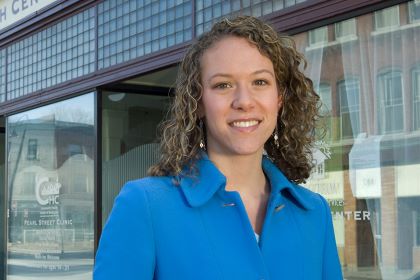(FEBRUARY 16, 2024) Heidi Schumacher, M.D.’10, assistant professor of pediatrics, commented to The Hill about finding a balance between having sick students stay home from school and the learning-loss consequences of absenteeism.

Heidi Schumacher, M.D.’10, assistant professor of pediatrics and a member of the American Academy of Pediatrics’s Council on School Health
(FEBRUARY 16, 2024) Heidi Schumacher, M.D.’10, assistant professor of pediatrics and a member of the American Academy of Pediatrics’s Council on School Health, commented to The Hill for an article about finding a balance between having sick students stay home from school and the learning-loss consequences of absenteeism.
During the pandemic but when schools were open, educators were advising parents to keep their children home at any sign of sickness due to fear it could be COVID-19. Now, guidance is largely back to where it was pre-pandemic, but the switch is not so simple.
The American Academy of Pediatrics (AAP) recommends students not go to school if in the past 24 hours they had a fever above 101 degrees or episodes of diarrhea or vomiting. They should also stay home if they are not well enough to participate in class. Problems such as a runny nose, cough, or slight headache where a student can still participate in class are not a cause to keep a child home, the AAP says.
“Pediatricians can be a trusted voice and resource for families in understanding the latest science, but also considering the unique needs and circumstances of the individual child and family,” Schumacher says. “Pediatricians and schools together have a great opportunity to educate, engage and empower families in making the best decisions to support their young person to thrive.”
Read full story
at
The Hill